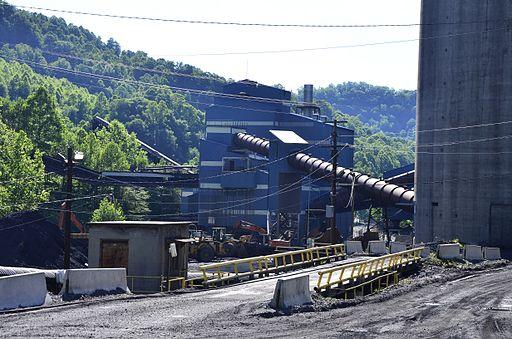
People rarely use the expression “ignorance is bliss” when referring to themselves. To do so would be to suggest that they at least know that there is something that they don’t know, even if they don’t know what that is.
When it comes to climate change, there is a lot of ignorance being bandied about -- both about the weight of scientific understanding and evidence that exists underscoring the role of human activity, and the economic and social impact of dealing with the crisis in a meaningful way.
Despite the efforts of a regiment of doubtmongers, assigned to keep the debate going, most Americans have heard enough of the science and understand that the crisis is real. And even among those who are skeptical, many understand that making this country more efficient in every major aspect of the economy would be a good thing, even if were undertaken on the basis of a miscalculation.
Given the inability of Congress to act effectively, the president has given executive orders to the Environmental Protection Agency to reduce power plant carbon emissions, which will be achieved through the Clean Power Plan (CPP).
But there are still a number of holdouts, in a position to make a difference, who continue to gum up the works. Among them are Sen. James Inhofe of Oklahoma and Gov. Rick Perry of Texas. Both of these men insist not only that the science establishing human’s role in climate change must be wrong, but also that doing anything about it would represent economic disaster. I won’t take the time here to recount the volumes of data refuting their first point. Instead I’d prefer to focus on a new report issued by the Center for Strategic and International Studies and the Rhodium Group, which looks at “The Economic and Energy Impacts of Power Plant Emissions Standards.” This report sheds some light on the distinguished gentlemen's second point: The study finds that both of the states these avid deniers and obstructers represent and vow to protect, Oklahoma and Texas, would, in fact, benefit by following the EPA rules rather than resisting them.
The reason for this is natural gas, which frankly, has turned many energy calculations and positions on their heads. The move to generate cleaner electricity will lead to a conversion of more power plants from coal to natural gas, which emits roughly half as much carbon. In fact the study, assessing the projected impact of the EPA’s CPP, shows only a modest increase in renewables, from 14 percent to 15 percent. Comparatively, they expect natural gas to rise from 29 percent to 43 percent, while coal decreases from 38 percent to 21 percent by 2030, when compared to the reference, business-as-usual scenario. This increased demand for gas will create increased profits for corporations, jobs for workers, and government revenues at the same time. Of course, Texas has already been seeing this with their wind power boom, though natural gas plays more squarely into the hands of those close to the political establishment. With their robust transmission infrastructure, Texas is well prepared to deliver considerably more renewable energy than this report predicts.
According to the study, Arkansas, Louisiana, Oklahoma and Texas, the states that would be asked to make the steepest cuts to their carbon emissions, would see a combined annual net economic benefit of up to about $16 billion.
So that makes just about everyone happy except for those few poor folks whose livelihoods truly depend on coal. Inhofe points out plans to build a new coal mine in a very poor part of Oklahoma, near Poteau. Those people “would be devastated,” he said. It’s a fairly localized effect. Overall, many states are getting into the gas-drilling boom, which, of course, has problems of its own. Those areas that had coal may not necessarily have gas. That is the sad reality. But then, a lot of good people lost their jobs making buggy whips when the automobile came along.
The wild card in all of this is energy efficiency (EE). The report acknowledges that EE can make a huge difference in these outcomes, though it’s difficult to predict just how much of it will be implemented.
With change comes dislocation, and both winners and losers. Those people working coal had their turn. They made their money and in the process did a lot of damage to the planet, without meaning to. Now it’s time to move on. But that doesn’t mean there won’t be pain.
Take Virginia, for example. Here is a state where on the eastern end, in Norfolk, the shipyards are spending tens of millions dealing with rising seas, while on the western end, coal miners are terrified of losing their jobs. It’s a pretty tricky row to hoe for politicians.
These same politicians will ultimately decide whether to follow the EPA rules or defy them. Senate Minority Leader Mitch McConnell (R-Ky.) is already preparing legislation to override the rules in order to protect his coal-rich home state, but it won’t pass the Senate. Meanwhile, with each passing day, week, month, year — the case for taking action becomes ever more compelling.
Image credit: Magnolia677: Wikimedia Commons

RP Siegel (1952-2021), was an author and inventor who shined a powerful light on numerous environmental and technological topics. His work appeared in TriplePundit, GreenBiz, Justmeans, CSRWire, Sustainable Brands, Grist, Strategy+Business, Mechanical Engineering, Design News, PolicyInnovations, Social Earth, Environmental Science, 3BL Media, ThomasNet, Huffington Post, Eniday, and engineering.com among others . He was the co-author, with Roger Saillant, of Vapor Trails, an adventure novel that shows climate change from a human perspective. RP was a professional engineer - a prolific inventor with 53 patents and President of Rain Mountain LLC a an independent product development group. RP was the winner of the 2015 Abu Dhabi Sustainability Week blogging competition. RP passed away on September 30, 2021. We here at TriplePundit will always be grateful for his insight, wit and hard work.














